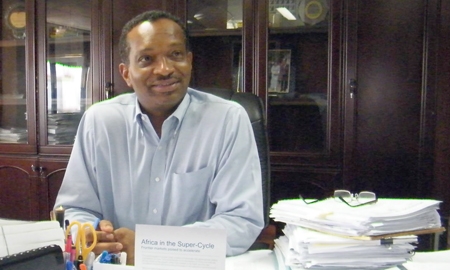
At the heart of the West African Power Pool (WAPP), an association of electricity companies in the Economic Community of West African States (ECOWAS) sits a vibrant, far-seeing Ghanaian institution: The Volta River Authority (VRA). Established in 1961 under the Volta River Development Act, the body was mandated to operate mainly as a power generation, transmission and distribution utility. However, in 2005, following a major amendment to the VRA Act, its mandate was altered to enable the organisation to create the requisite environment for attracting independent power producers (IPP’s). That, as well as the establishment of WAPP, opened the door, not just to new producers, but to a new way of thinking: The VRA was afforded a vital opportunity to look beyond its own borders, and to assess energy needs on a long term, sustainable, geographically-wide basis.
In 2010, following years of research and planning, VRA’s board approved the first renewables energy policy. “That allowed us to start looking at developing renewable sources, on a wide scale,” explains Kweku Awotwi, CEO of the VRA. Harvard-educated Mr Awotwi has worked in Fortune 50 companies and was employed by the first African company to list on the New York Stock Exchange. His business background dictates that he understands the requirement to seek out international expertise: “We know that Europe has taken the lead in all renewables, so it is a natural place to go to look for leadership, knowledge and technology – we’ve certainly found that to be the case; we recently awarded a large contract to a German company who will be our partners for the next two years.”
But the VRA’s history has been full of partnerships. “Much of our original success was built on a partnership we had with Ontario Hydro for 30 years. They brought in the first CEO and promoted a very successful training program where our people were sent out to learn about hydro. The second company we partnered with was from Michigan - it goes on from there… in the power business it is hard not to have partnerships because of the scale of expertise you need’’.
| “It is all about sustainability. We only have so many places we can build dams. This means our thermal sources are the best case for renewables.” Kweku Awotwi, CEO of VRA |
Because of the VRA’s 50 year-long experience it became the fulcrum of WAPP when the latter was established: “We helped to set up all the organizing structures, institutions, and corporate governance, and we have been heavily involved in WAPP’s ongoing
development.”
Being at the epicentre of WAPP’s programming permits the VRA an unique understanding of wider West African energy requirements. The VRA is fully cogniscent of its power and economic clout: “Our budget is GHS 1 billion - so we have a huge span of control.”
However, from its outset, the VRA has had “compelling” CSR initiatives: “Part of the mandate we have today is taking care of the communities on the lakeside. We set up a community development initiative. We work closely with the Ghana Health Services, NGOs and USAID. We are doing a lot more to rehabilitate the lake for tourism, fishing and transport. We brought in more educational support for our communities. We set up a public-private partnership model and identified a private concessionaire to come in with their dredger. We are sharing profits from this exercise with local communities…”
He cites a highly-educated workforce as part of the attraction for potential partners: “Our First President made creating an educated elite a very specific part of his agenda. From very early on, Ghanaians had free education and were encouraged to go to university.” The role of boarding schools in this equation cannot be underestimated: “A rich socio-economic mix of people was created in the boarding school system which assisted in braking down social barriers. Even though Ghana is 20 to 30% Muslim, ethnic divisions simply not exist here like they might in Nigeria.”
He is very clear about his goals and priorities: “I am looking for partnerships; I can make a huge difference. In the area of renewables West Africa provides unrivalled opportunities. WAPP has the ability to break down barriers, and in the area of gas development you need an able customer like VRA to make that happen. We are right in the middle of both the natural gas dialogue, and the dialogue around electricity access in the region. We hear both sides of that discussion. And we can help to drive that discussion forward with insight and enthusiasm.”
0 COMMENTS